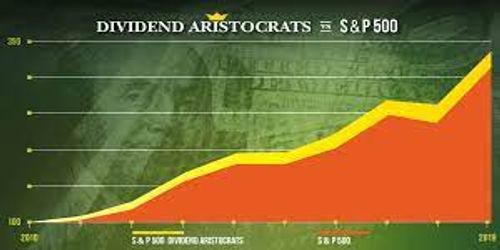Imagine paying less at the pump for every gallon of gasoline or diesel you purchase. It's a prospect that appeals to most drivers, and it's precisely what a "Gas Tax Holiday" promises. In this comprehensive guide, we'll explore the concept of a Gas Tax Holiday, its history, impact, controversies, and its role in shaping the economy. So, fasten your seatbelts as we embark on a journey to understand this intriguing aspect of taxation and its effects on your wallet and the broader financial landscape.
Understanding Gas Taxes
Before delving into the intricacies of a Gas Tax Holiday, let's first grasp the concept of gas taxes. Gasoline and diesel fuels have long been subjected to taxation by governments worldwide. These taxes serve multiple purposes, such as funding infrastructure projects, reducing environmental impact, and generating revenue for government budgets.
Gas taxes typically consist of federal, state, and local components. The rates vary significantly across regions and are usually assessed on a per-gallon basis. In the United States, for instance, the federal government imposes a federal excise tax on gasoline and diesel, while individual states may apply their own additional taxes. Consequently, gas prices can vary significantly from one state to another.
The revenue collected from gas taxes plays a crucial role in maintaining and upgrading roads, bridges, and public transportation systems. It also contributes to funding environmental initiatives, including efforts to reduce emissions and combat climate change.
What Is a Gas Tax Holiday?
A Gas Tax Holiday, sometimes referred to as a Fuel Tax Holiday, is a temporary reduction or elimination of gas taxes imposed by governments. During such a period, consumers enjoy a reduction in the price they pay at the pump, as the tax burden on each gallon of fuel is reduced or eliminated altogether. Governments typically introduce these holidays as a means to provide relief to consumers during times of economic hardship or high gas prices.

Gas Tax Holidays can take various forms. The reduction in gas taxes can be implemented at the federal, state, or local level, or a combination of these. Additionally, the duration of these holidays varies, with some lasting for a few days, weeks, or even months.
The History of Gas Tax Holidays
The concept of a Gas Tax Holiday is not a recent development; it has a history dating back several decades. The first notable Gas Tax Holiday occurred in the 1970s during the oil crisis in the United States. In response to soaring oil prices and concerns about energy security, the federal government temporarily reduced gas taxes to relieve consumers grappling with rising fuel costs.
Over the years, Gas Tax Holidays have resurfaced during periods of economic downturns or significant spikes in gas prices. In 2000, for instance, the state of Georgia temporarily suspended its gas tax to alleviate the financial burden on its residents following a sharp increase in fuel costs. Similarly, in 2020, amid the COVID-19 pandemic, some U.S. states explored the idea of Gas Tax Holidays as a way to support struggling consumers.
The Impact of Gas Tax Holidays
Gas Tax Holidays have both immediate and long-term consequences, which can vary depending on several factors, including the scope of the tax reduction, the duration of the holiday, and the overall economic context. Let's examine some of the key impacts:
Immediate Savings for Consumers
The most evident impact of a Gas Tax Holiday is the immediate reduction in fuel prices for consumers. This can provide much-needed relief to individuals and families facing financial challenges, particularly when gas prices are soaring.
Stimulating Consumer Spending
Lower fuel prices resulting from a Gas Tax Holiday can increase consumer spending in other sectors of the economy. When people pay less for fuel, they often have more disposable income to spend on goods and services, which can help boost economic growth.
Support for Businesses
Reduced fuel costs can benefit businesses, especially those heavily reliant on transportation. Lower operating expenses for companies in sectors such as logistics and delivery can translate into lower prices for goods and services, benefiting consumers further.
Short-Term Revenue Loss for Governments
Governments that implement Gas Tax Holidays experience a reduction in revenue from fuel taxes during the holiday period. This can impact funding for infrastructure projects and other essential services.
Long-Term Economic Impact
The long-term impact of Gas Tax Holidays is more complex. While they can provide immediate relief, they may not be a sustainable solution to address underlying economic challenges. Governments may need to find alternative revenue sources or adjust spending after a Gas Tax Holiday.
Environmental Considerations:
Some critics argue that Gas Tax Holidays encourage increased fuel consumption, which can have adverse environmental consequences. Higher fuel consumption can lead to more greenhouse gas emissions and air pollution.
Controversies Surrounding Gas Tax Holidays
Gas Tax Holidays are not without controversy, and debates often arise regarding their effectiveness and fairness. Some of the key controversies include:

Equity Concerns
Critics argue that Gas Tax Holidays primarily benefit car owners and drivers, leaving out individuals who do not own vehicles or rely on public transportation. This can exacerbate income inequality, as lower-income households may not benefit proportionally.
Short-Term vs. Long-Term Impact
There is a debate about whether the short-term relief provided by Gas Tax Holidays outweighs their potential long-term negative consequences, such as reduced infrastructure maintenance and repair funding.
Lack of Predictability
Gas Tax Holidays are often implemented in response to specific events or crises, making it challenging for consumers and businesses to plan for the future. This lack of predictability can hinder long-term economic stability.
Environmental Impact
As mentioned earlier, Gas Tax Holidays can increase fuel consumption, contradicting efforts to reduce carbon emissions and combat climate change.
The Future of Gas Tax Holidays
The future of Gas Tax Holidays remains uncertain and depends on various factors, including economic conditions, political decisions, and evolving energy trends. Governments will continue to grapple with the challenge of balancing short-term relief for consumers with long-term fiscal responsibility and environmental considerations.
As electric and alternative fuel vehicles become more prevalent, the reliance on gasoline and diesel may decrease, potentially leading to a reevaluation of gas tax policies. Governments may need to explore new revenue sources to fund infrastructure projects and address the changing transportation landscape.
Conclusion:
Gas Tax Holidays are a temporary reduction or elimination of gas taxes implemented by governments to relieve consumers during economic hardship or high gas prices. While they offer immediate consumer savings and can stimulate economic activity, they also come with controversies and long-term implications. The future of Gas Tax Holidays will depend on how governments adapt to changing economic and environmental conditions.
As consumers and taxpayers, staying informed about these policies and their potential impacts on our wallets and the broader economy is essential. Whether you enjoy the savings during a Gas Tax Holiday or are concerned about its consequences, understanding the underlying dynamics is crucial in shaping informed opinions and advocating for responsible fiscal policies.



